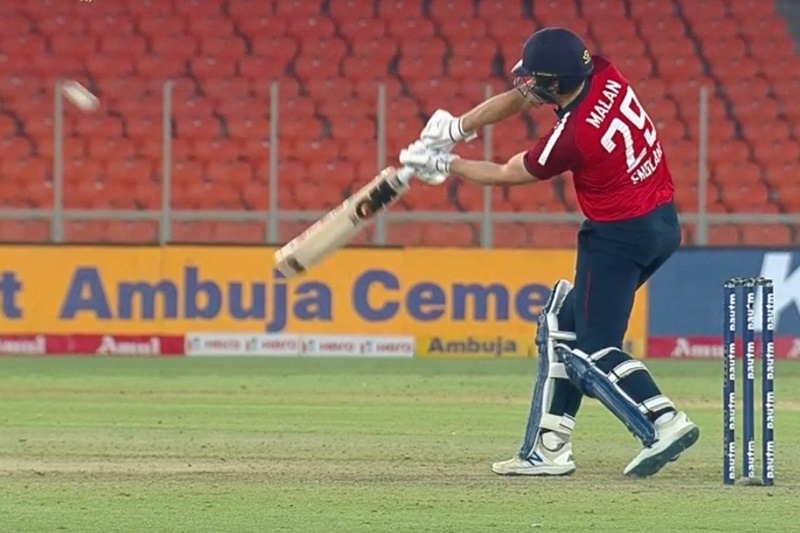When it comes to T20 batting, the ICC’s rankings reward selfishness – but teams often benefit more from selflessness. The Dawid Malan debate is an interesting one.
There’s a pretty strong case for saying T20 batting rankings aren’t worth the webspace that stores the algorithms that generate them. Because what are they measuring exactly?
We’re sure the calculation is getting tweaked all the time, but they currently seem to reward sizeable innings more than anything. Does that equate to quality or is it just a measure of how disproportionately large a role a batsmen tends to play for his team?
We would argue that prominence is not a measure of quality, because influence can be negative as well as positive. Being at the crease scoring runs in a T20 match is not always helping your team.
A help or a hindrance?
While on the face of it every T20 batsman is trying to do the same thing – score as many runs as possible in as few balls as possible – the reality is that the run-rate of a match isn’t a constant.
On a fairly basic level, runs are usually scored most quickly at the death. Elsewhere, while the change in run-rate between the opening powerplay and the middle overs isn’t necessarily all that marked, the way runs are scored does change. Fielding restrictions mean the start of a team’s innings tends to feature a greater proportion of dot balls and boundaries, while the middle overs are more about accumulation.
Then you can get more granular, looking at different conditions, different targets and different types of bowlers deployed at different times in the match.
There’s a whole analysis industry built around this now. Much of the output is enlightening and very interesting. A certain amount of it is also wearyingly tedious and makes the game seem like a joy-sucking quarterly financial report.
The crux of it all is this though: the value of a T20 batsman relates to whether he outscores other people in specific situations – and if so, by how much.
How many?
In Test cricket, we sometimes say, ‘it’s not about how; it’s about how many’.
It would be neat if that were exactly reversed for T20, but it isn’t. It is just that because of the constricted nature of the game, ‘how many’ becomes a lot, lot less important, while ‘how’ becomes much, much more important.

‘Playing yourself in’ is a borderline-criminal investment in yourself because it may well come at the expense of the team. It is a selfish gamble that may well not pay off.
Dawid Malan has long had a reputation for doing this. He starts slowly and then accelerates quite a lot. The value of a given innings therefore largely hinges on the point at which he is dismissed. A long Malan innings tends to be very useful – and to be fair, up until now he’s played quite a few of them. Conversely, when he gets out before he’s changed gear, he’s generally burned through a few deliveries and in so doing helped the opposition.
In short, a golden duck is a better innings than 14 off 17 balls because it’s far less costly.
The ability to ignite immediately is a valuable quality in the shortest format. It’s the old ‘Jason Roy is tinder‘ thing.
Malan is a pretty big log who the ICC rankings say can burn pretty hot. The problem for England is that they do quite often lose when he fails to ignite.
Do you maybe fancy reading some of our quirky features next?





I initially misread this as Jason Roy is on Tinder.
He certainly has a few swipes.
I’m here all week.
I know Jos Buttler looks fantastic when he scores 83* to win the game for England, but it is really the best option for him to be at the top?
England have plenty of options to open the batting in T20Is. Jason Roy and Jonny Bairstow do it in ODIs, Moeen Ali’s done it before, Ben Stokes did it last year and even Sam Curran’s had a go in the IPL. But nobody can replace Jos Buttler down the order when it comes to batting under pressure and finishing off games.
In theory he could play with more freedom opening, but that’s not really the case, because even when he’s facing the first ball of the match he also knows that if the match is anywhere near close in the last five overs there’s nobody who can finish the game off in the way he can. He’s still England’s finisher, but even in the best-case scenario he’s been slogging a load of deliveries in 40 degree heat first, and more often than not he’s out and Chris Jordan and Adil Rashid are trying to score 12 off 3.
Until we do find a finisher who can do that part of the work, Jos Buttler opening isn’t freeing him from responsibility, it’s just stopping England fielding two openers who can actually swing the bat without much fear of what will happen next.
However, you could also that Jos Buttler is England’s best opening option right now. Wherever he bats he is probably England’s best T20 batsmen.
I personally think that they need to drop Dawid Malan. He isn’t converting his slow starts at the moment to amazing innings and England need to man up and bring Alex Hales back.
Before the CWC19 with Jason Roy and Alex Hales opening and YJB coming in at three England frequently won games just with those three working well together and they didn’t really ever falter and when they did they still had the middle order that can finish it off. Bring Hales back, drop Malan and life’s good.
When you don’t have a grudge choices are easy to make.
James Vince is another to add into the mix. He is in good form at the moment.
Or, dare one say it, perhaps Joe Root…
One heartily agrees. He was actually the highest England run scorer at the end of the CWC19 as well.
Stokes: “It is a final because if we don’t win then we lose a series and we don’t want to lose series, we want to win and we want to make a habit of winning them.”
That’s cleared that up.